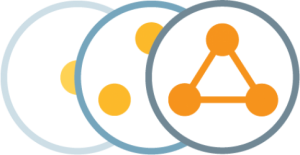The patent that has just been awarded to Knowledge Leaps is for our continuous learning technology. Whether it is survey data, purchase data or website traffic / usage data., the technology we have developed will automatically search these complex data spaces. The data spaces covers the price-demand space for packaged goods, or the attitudinal space of market research surveys and other data where there could be complex interactions. In each case, as more data is gathered - more people shopping, more people completing a survey, more people using an app or website - the application updates its predictions and builds a better understanding of the space.
In the use-case for the price-demand for packaged goods, the updated predictions then alter the recommendations about price changes that are made. This feedback loop allows the application to update its beliefs about how shoppers are reacting to prices and make improved recommendations based on this knowledge.
In the survey data use-case, the technology will create an alert when the data set becomes self-predicting. At this point capturing further data is unnecessary to understand the data set and carries an additional expense.
The majority of statistical tools enable analysts to identify the relationships in data. In the hands of a human, this is a brute-force approach and is prone to human biases and time-constraints. The Knowledge Leaps technology allows for more systematic and parallelized approach - avoiding human bias and reducing human effort.



